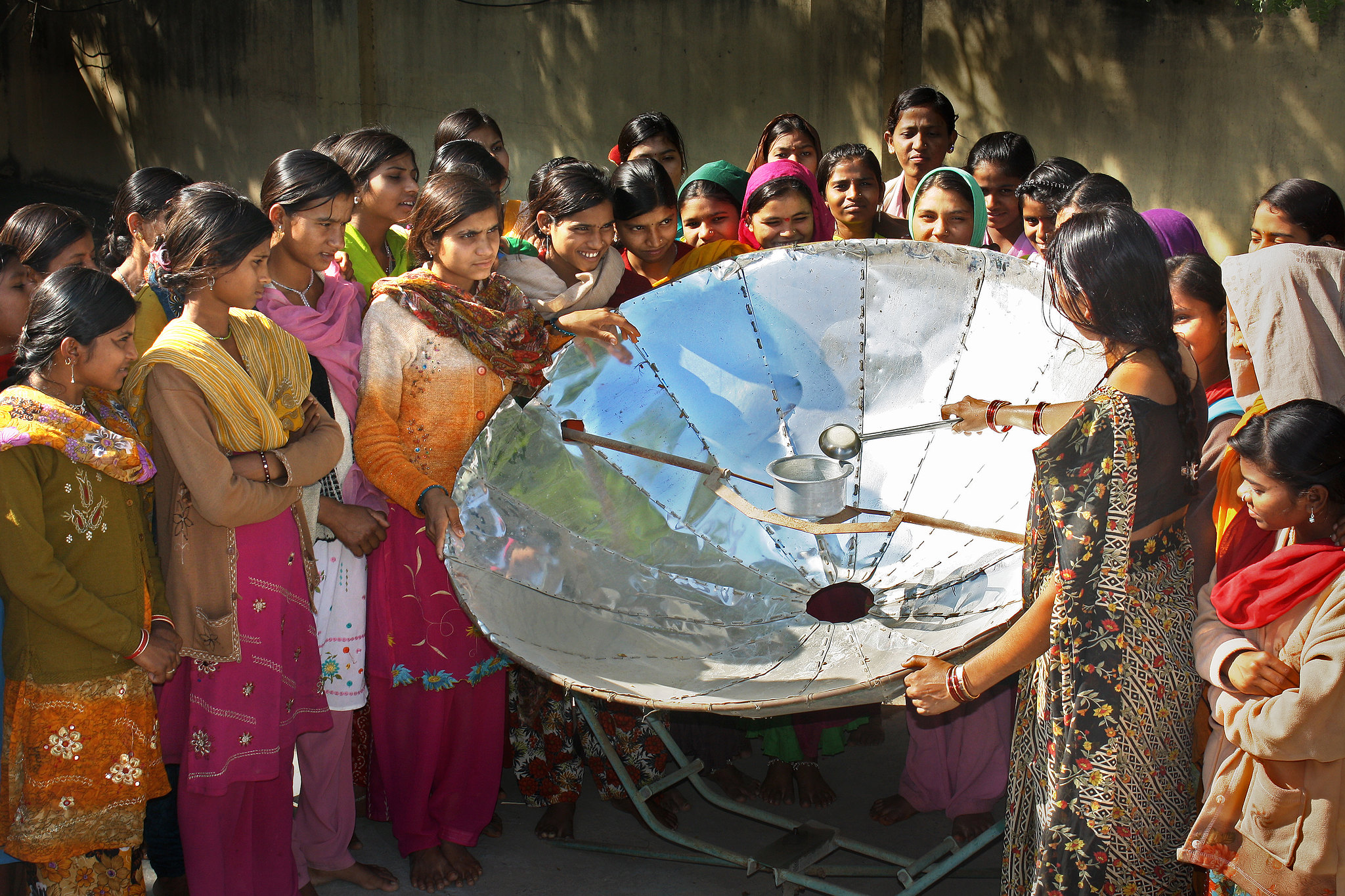5 Ways Solar-Cookers Help Fight Poverty
 An estimated three billion people around the globe rely on open, bio-fuel based fires to cook. Open-fire cooking can cause injuries from open flames, generate long-term health issues from smoke inhalation, and aggravate deforestation. Furthermore, the time-consuming and often dangerous task of traveling long distances to collect biofuel and maintain the fire disproportionately burdens women and children. Solar-cookers offer a cheap, clean and safe alternative to cooking with an open fire. Implementing this technology can help families avoid the detrimental effects of open-fire cooking that contribute to the cycle of poverty.
An estimated three billion people around the globe rely on open, bio-fuel based fires to cook. Open-fire cooking can cause injuries from open flames, generate long-term health issues from smoke inhalation, and aggravate deforestation. Furthermore, the time-consuming and often dangerous task of traveling long distances to collect biofuel and maintain the fire disproportionately burdens women and children. Solar-cookers offer a cheap, clean and safe alternative to cooking with an open fire. Implementing this technology can help families avoid the detrimental effects of open-fire cooking that contribute to the cycle of poverty.
How Solar Cookers Work
Solar-cookers are oven-like devices that use mirrored surfaces to concentrate the sun’s thermal energy and heat the cooker’s contents. These devices are easily constructed with low-cost materials and even the most rudimentary model—the box cooker—can cook at a temperature up to 140° Celsius, or 284° Fahrenheit.
How Solar-Cookers Help Break the Cycle of Poverty
- The only fuel needed to operate solar-cookers is both free and abundant—the sun. While some regions are better suited for harvesting sunlight than others, 85% of the 500 million people living in sun-abundant territories suffer from regional biofuel shortages. Due to these shortages, families either spend as much as 25% of annual income on biofuel or regularly travel long distances to collect it themselves. Solar-cookers relieve families of this financial burden. Besides the initial cost of purchase or construction, solar-cookers need only sunlight to operate. The funding typically allotted for fuel can then be spent on education, increased healthcare or more nutritious foods.
- Solar-cookers provide time for families to pursue other activities. Cooking with open fires can require as many as four hours daily to retrieve biofuels. Comparatively, solar-cookers eliminate the need to travel large distances in order to cook altogether. Additionally, the food in solar-cookers does not need regular stirring and can be left unattended for the total cook time. For the women and children typically involved in the process of maintaining the fire or gathering fuel, the valuable time saved can be spent on other economically beneficial activities, such as pursuing education, caring for family members or producing and preparing goods for sale.
- Solar-cookers can reduce the rate of infections and death due to water-borne illnesses. Solar cookers can be used to pasteurize water in locations where potable sources of water are unavailable. Eliminating the cost of biomass fuel to heat the water, solar-cookers make consistent purification of drinking water more economically viable. Water purification also saves families from unnecessary and costly expenditures on healthcare due to water-borne illnesses.
- Solar-cookers combat malnutrition. High levels of childhood stunting, a direct effect of chronic malnutrition, correlates directly with household poverty. Biofuel-scarcity contributes to malnutrition, as families exclude foods with higher nutritional value due to longer cook times. Solar-cookers eliminate this problem, allowing families to restore nutrient-heavy foods to their diets. Additionally, the slow cooking style of solar-cookers allows food to retain more nutrients than if cooked through traditional methods. Lastly, local food production and availability improve as solar-cookers reduce deforestation; the increased quality of soil and water lends itself to superior agricultural production.
- Solar-cookers eliminate the risk of health issues caused by open fires. According to the World Health Organization, household air pollution from open fire cooking and simple stoves are responsible for approximately four million deaths annually. Accidents from open-fire cooking can lead to burn injuries and disfigurement, as well as the destruction of property. Solar-cookers are entirely flame and smoke-free. These devices effectively eliminate the detrimental consequences of meal and water preparation and save families from burdensome healthcare costs.
Solar-Cookers in Action
The success stories are plenty. In the Iridimi refugee camp in Chad, distribution of solar-cookers by the NGO Solar Cookers International caused an 86% drop in trips outside of camp to collect firewood. This reduced exposure to violence from the Janjaweed militia group. Additionally, food consumption increased as families no longer needed to barter food rations away for firewood. In Oaxaca, Mexico, where households spend as much as 10% income on energy, Solar Household Energy supplied 200 local women with solar cookers in 2016. Today, users report that the cookers have reduced the use of their woodstoves by more than 50% and that they have more free time. Many of the women now organize solar-cooker demonstrations in their homes to promote the benefits of leaving open-fire cooking behind.
– Alexandra Black
Photo: Flickr
